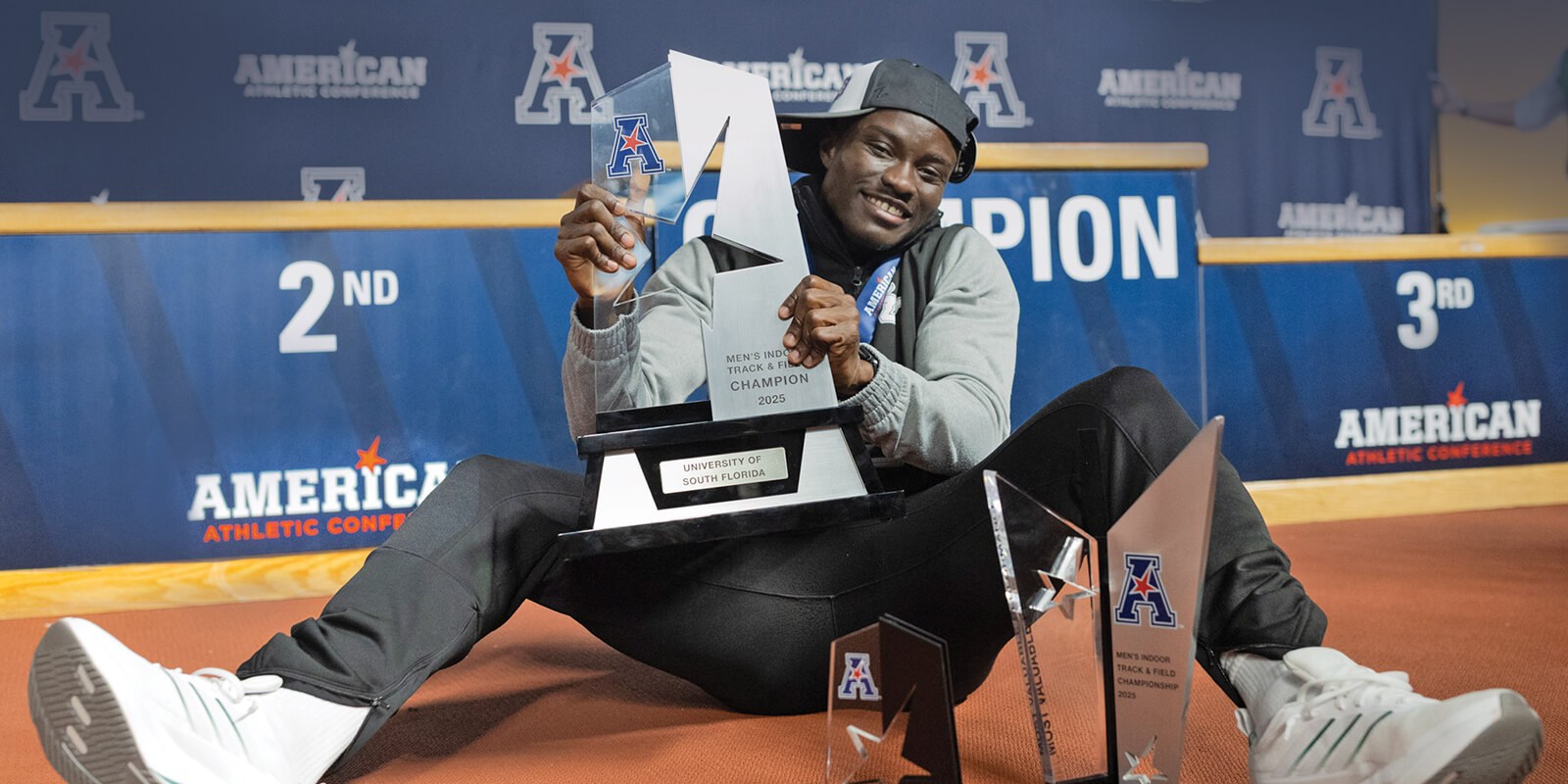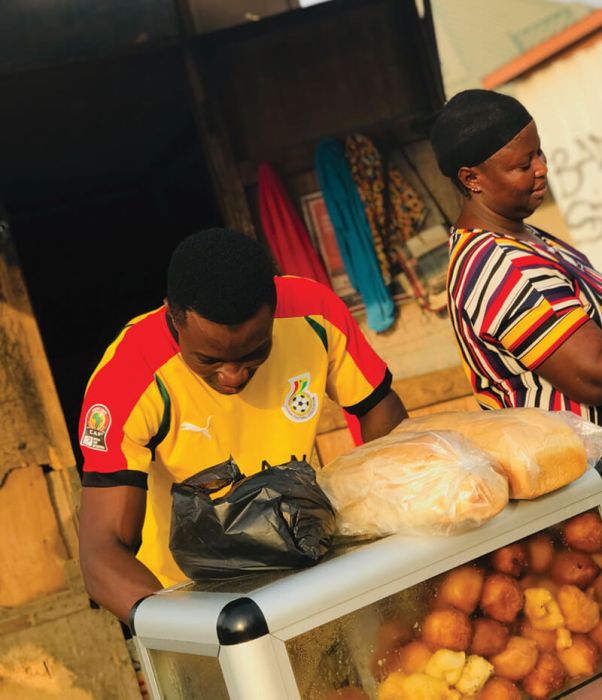
As a kid growing up in Ghana, he raced rabbits — and WON
Now the record-breaking sprinter is chasing his dream
 rack and field junior sprinter Abdul-Rasheed Saminu has raced to a top finish in USF athletics history, setting a program record in the high-profile 100 meters, competing in last summer’s Olympic Games for his native Ghana and helping the Bulls to three conference championships (so far) while achieving All-American status.
rack and field junior sprinter Abdul-Rasheed Saminu has raced to a top finish in USF athletics history, setting a program record in the high-profile 100 meters, competing in last summer’s Olympic Games for his native Ghana and helping the Bulls to three conference championships (so far) while achieving All-American status.
It’s a great story.
But get a load of the 24-year-old’s backstory.
He grew up in the tiny West African village of Wulensi, Ghana, in a dwelling without electricity, running barefoot to chase down rabbits for food. “It wasn’t just straight-out fast running,’’ he says. “You need mobility to run with a rabbit. They are tricky.’’
He ran his first formal competition on a grass track, attended the University of Ghana, Legon, for a year, then came to America to study and pursue new opportunities.
Now, he’s one of the world’s fastest men.
“When I tell people the story, they think it’s amazing,’’ Saminu says. “It is just my story. I have come a long, long way. But I just go out there, do my best and run my race. It’s really as simple as that.’’
His uncomplicated approach may be a key reason for his success. He doesn’t overthink any performance. He simply runs — very, very quickly.
“I did not grow up with a lot’’ of resources, Saminu says. “But I have always run for the fun. I still do it for the fun. I’m very happy that it has taken me places, like America, and given me the chance for a successful life.’’

A mass communications major, he hopes to remain involved in track and field, or sports in general, maybe as a commentator or advisor to other athletes.
“To come here to USF and get an education, to have these opportunities with a scholarship, I am very grateful,’’ he says. “I have the ability to run and that is giving me a good chance at life.’’
At last season’s USF Invitational, Saminu says he had a great week of preparation. When the 100-meter dash was complete — when he noticed all of his coaches and teammates clapping, jumping or exchanging high-fives — the time read 9.95 seconds. That finish led the nation for a month until being supplanted by a 9.93.
And then he beat his own record. At the Pepsi Florida Relays in April, he clocked 9.87 in the 100-meter, shattering the USF program record and setting the fastest pace at the time for that collegiate event.
“He’s very focused and he comes to work every day,” says Erik Jenkins, USF’s track and field head coach. “He listens, understands and puts it into practice. He’s precisely the guy I thought he would be when we first heard about him.’’
Jenkins says he has successfully recruited African athletes throughout his career, dating back to his stint at Western Kentucky. He had his eye on Saminu for a few years before he was able to recruit him to USF.
“Tampa was a nice city and USF had a great program,’’ Saminu says. “I thought I would fit in well. But nobody ever thought I would come from that tiny village and make it to this level.’’
Let alone a trip to last summer’s Olympic Games in Paris, where Saminu reached the 100-meter semifinals, earning him the status of the world’s top 16 athletes in that event.
"To come here to USF and get an education ... I am very grateful.”
– Abdul-Rasheed Saminu
“In a way, I couldn’t believe I was actually there,’’ he says. “But in the end, I felt I belonged. Now my goal is to get up on that podium’’ as a top-three finisher in the 2028 Olympic Games in Los Angeles.
In Ghana, about 80 languages are spoken. Saminu speaks five — English, Dagbani, Twi, Hausa and Arabic.
“It might seem like he is from a very different place, but people are people,’’ Jenkins says.
Zayquan Lincoln, who runs the 4x100 relay with Saminu, says he has a distinctive style.
“The way he goes about things, the way he moves … it’s all just very different. There’s no telling what he might do. Sky’s the limit, really.’’
Saminu is a legitimate triple-threat in the 100 meters; the 200 meters, where he has a 20.34 wind-aided time; and the 4x100 relay, where he anchored a team that captured the event at the storied Penn Relays and edged Houston by a hundredth-of-a-second at 39.34.
“He has a chance to be very, very scary,’’ Jenkins says. “We are happy that he chose the University of South Florida. He can be the person who everybody talks about, the standard-bearer.’’
For Saminu, the finish is never the end of the story.
- Joey Johnston, ’81 // Athletics

